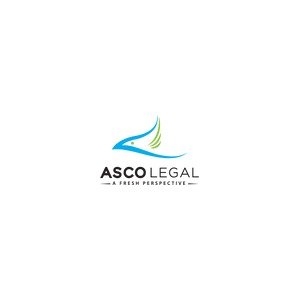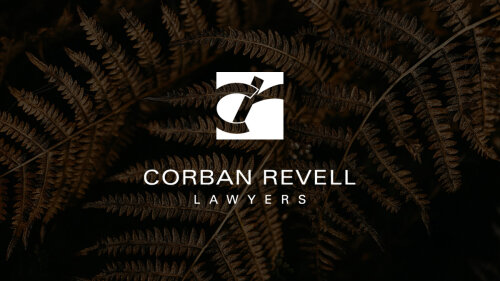Best International Trade Law Lawyers in Auckland
Share your needs with us, get contacted by law firms.
Free. Takes 2 min.
List of the best lawyers in Auckland, New Zealand
About International Trade Law in Auckland, New Zealand
International Trade Law in Auckland, New Zealand, is a significant aspect of legal practice due to the country's strong participation in global trade. Auckland, being a major economic and cultural hub, experiences a substantial amount of international trade activities. The law encompasses various legal frameworks governing the buying, selling, and exchange of goods and services across international borders. It deals with issues like tariffs, import and export regulations, trade agreements, and dispute resolution mechanisms. Given New Zealand's reliance on trade and its numerous trade agreements, understanding International Trade Law is pivotal for businesses operating in Auckland.
Why You May Need a Lawyer
Several common situations necessitate seeking legal help in International Trade Law:
- Negotiating or drafting international sales contracts to ensure compliance with relevant trade laws and standards.
- Resolving disputes arising from international trade transactions, such as breaches of contract or payment issues.
- Navigating complex import/export regulations and customs procedures, ensuring your company adheres to compliance requirements.
- Understanding and utilizing trade agreements and tariffs that can affect business operations and profitability.
- Dealing with intellectual property rights that may be affected by cross-border trade activities.
- Minimizing legal risks and liabilities associated with international business operations.
Local Laws Overview
Some key aspects of local laws that are particularly relevant to International Trade Law in Auckland include:
- Customs and Excise Act: Governs the importation and exportation of goods, including duty calculations and customs procedures.
- Fair Trading Act: Regulates misleading and deceptive conduct in trade, ensuring that trading practices are fair and transparent.
- New Zealand's Free Trade Agreements (FTAs): Facilitates trade and investment, reducing trade barriers and enhancing market access.
- Biosecurity Act: Mandates compliance with biosecurity standards to protect local industries and ecosystems.
- Contract and Commercial Law Act: Provides the framework for commercial contracts, including terms and enforceability.
Frequently Asked Questions
1. What does International Trade Law cover?
International Trade Law covers the rules and regulations governing cross-border transactions involving the exchange of goods, services, and intellectual property.
2. How do Free Trade Agreements (FTAs) affect businesses in Auckland?
FTAs provide enhanced market access, reduce tariffs, and offer businesses opportunities to expand abroad, ensuring favorable trade conditions.
3. When is a customs broker needed in international trade?
Customs brokers are often required when navigating complex import/export regulations to ensure compliance and handle documentation efficiently.
4. What are the penalties for non-compliance with trade regulations?
Penalties may include significant fines, confiscation of goods, loss of trading privileges, and potential legal action.
5. How can I resolve a trade dispute with an international partner?
Trade disputes can be resolved through arbitration, mediation, or litigation, depending on the terms outlined in the contract and the jurisdictions involved.
6. Are there specific regulations for e-commerce in international trade?
Yes, regulations address issues like consumer protection, data privacy, and logistical challenges specific to e-commerce transactions.
7. How do international sanctions impact trade with certain countries?
Sanctions can limit or prohibit trade with targeted countries, affecting the ability to export or import certain goods or services.
8. What role does the World Trade Organization (WTO) play in trade law?
The WTO establishes global trade rules and provides a framework for negotiating and implementing trade agreements and resolving disputes.
9. How does intellectual property law intersect with international trade?
Intellectual property law affects how rights are protected and enforced across borders, influencing licensing and distribution agreements.
10. Can I engage in trade with countries that are not covered by FTAs?
Yes, but businesses must adhere to general international trade laws and any specific bilateral agreements that may exist.
Additional Resources
For those seeking further information or assistance, consider the following resources:
- New Zealand Trade and Enterprise (NZTE): Offers support and guidance for international trade activities.
- Ministry of Business, Innovation and Employment (MBIE): Provides information on trade regulations and compliance.
- Customs New Zealand: Essential for guidance on customs laws and procedures.
- Auckland Chamber of Commerce: Provides networking opportunities and information on trade laws and practices.
Next Steps
If you require further legal assistance in International Trade Law, consider the following steps:
- Consult with an experienced International Trade Lawyer in Auckland who has a strong understanding of legal intricacies and business acumen.
- Prepare relevant documentation and outline your needs clearly to your legal advisor.
- Engage with professional bodies or trade organizations that can offer legal support or referrals to qualified lawyers.
- Utilize online resources or legal databases to educate yourself on current legal standards and updates in International Trade Law.
Understanding the complex landscape of International Trade Law is crucial for businesses aiming to thrive in Auckland's global market.
Lawzana helps you find the best lawyers and law firms in Auckland through a curated and pre-screened list of qualified legal professionals. Our platform offers rankings and detailed profiles of attorneys and law firms, allowing you to compare based on practice areas, including International Trade Law, experience, and client feedback.
Each profile includes a description of the firm's areas of practice, client reviews, team members and partners, year of establishment, spoken languages, office locations, contact information, social media presence, and any published articles or resources. Most firms on our platform speak English and are experienced in both local and international legal matters.
Get a quote from top-rated law firms in Auckland, New Zealand — quickly, securely, and without unnecessary hassle.
Disclaimer:
The information provided on this page is for general informational purposes only and does not constitute legal advice. While we strive to ensure the accuracy and relevance of the content, legal information may change over time, and interpretations of the law can vary. You should always consult with a qualified legal professional for advice specific to your situation.
We disclaim all liability for actions taken or not taken based on the content of this page. If you believe any information is incorrect or outdated, please contact us, and we will review and update it where appropriate.
















